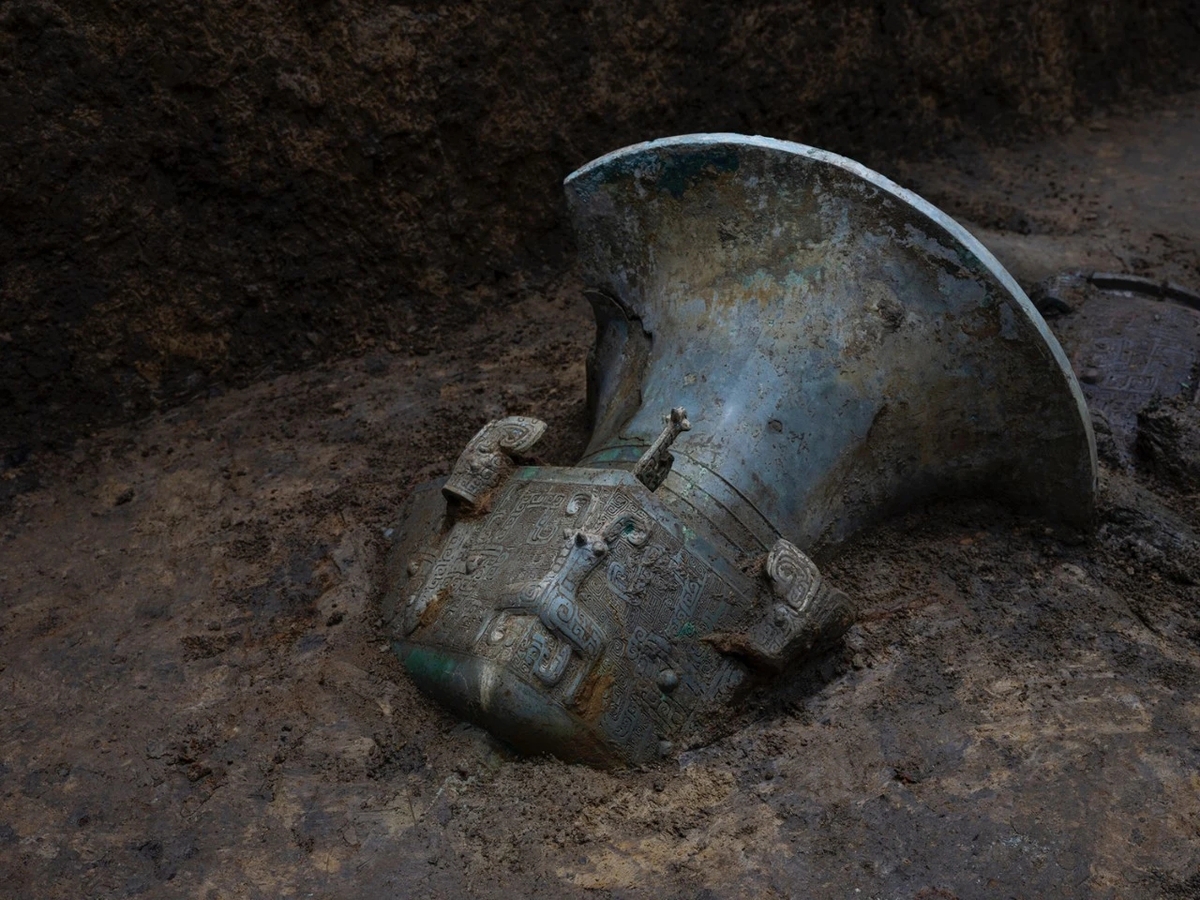

New discoveries at the Sanxingdui Ruins site in Guanghan, Sichuan province, have dramatically fueled public enthusiasm.
Ticket bookings to Sanxingdui Museum through Trip.com, where the news conference announcing major findings at the site was held on March 20, increased nearly 12 times that of the previous weekend.
Many tourists have gone to see the mysterious "ancient Shu civilization". About half of them come from Sichuan province and the rest mostly from Jiangsu province, Beijing, Guangdong province, Chongqing and Shanghai. Travelers who were born in the 80s and 90s have shown the most interest in the site, according to the agency.
More than 500 cultural relics have been unearthed at the site. Among them are fragments of a golden mask, bird-shaped gold decorative pieces, giant bronze masks, ivory, and a bronze sculpture of a tree.
Those discoveries could help clear up some questions about the ancient Shu civilization. Sanxingdui Ruins were the largest ancient Shu culture site in southwestern China. The Sanxingdui Museum has collected and displayed more than 1,000 relics unearthed from the site, including bronze, jade, gold, pottery and bone items. The museum covers an area of nearly 12,000 square meters. It has two pavilions. One displays cultural relics of various kinds, such as gold, bronze and jade, while the other pavilion is dedicated to bronze.
The bronzewares have a distinctive look. One of the most iconic relics is the Grand Statue of Human Figure, excavated from the No 2 sacrificial pit of Sanxindui in 1986. It symbolized the top authority.
This April the Sanxingdui Museum will start upgrading the bronze pavilion, which will use a high-tech and multimedia exhibition to display the relics to the public in August.
At the same time, major local museums in Sichuan have also received great interest, for those who want to gain a deeper insight in the ancient local culture. Historical sites in Chengdu, including the Jinsha Site Museum, Wuhou Shrine Museum and the Chengdu Museum, are all worth visiting in the city.
The Jinsha Site Museum, about an hour's drive away, was the site of a combined ancient Shu and modern civilization. The site covers an area of about five square kilometers and dates back to about 3,000 years ago, the time from the late Shang Dynasty (c. 16th-11th century BC) to the early Spring and Autumn Period (770-476 BC). The museum was built to protect, study and display the archaeological findings at Jinsha, which were first discovered by archaeologists in 2001. More than 200 gold articles, over 2,000 jade pieces, and many lifelike stone statues have been found in the site.
The Wuhou Shrine Museum is about half an hour drive from Jinsha. It offers a good example of the culture of the Three Kingdoms (220-280). The shrine complex sits in the south of Chengdu. It covers an area of about 150,000 square meters and was reputedly the sacred land of the Three Kingdoms. The shrine was originally built for the founding emperor of the Shu Kingdom (221-263) Liu Bei, since he had chosen the location as his own mausoleum. More than a thousand years later, the shrine commemorating one of Liu's loyal subject ministers, counselor-in-chief Zhuge Liang (181-234), was moved here.
Travelers also can't miss Jinli street beside the museum, where ancient architecture, local food, souvenirs, Sichuan opera and other folk performances can be enjoyed. In addition to those historical sites, Sichuan boasts stunning natural landscape and distinctive gourmet food, as well as the cute giant pandas, all promising an unforgettable journey.
Tips: There are many intercity trains between Chengdu and Guanghan, which takes about half an hour one way. Many tourist attractions in Chengdu offer bus services to the Sanxingdui Museum.